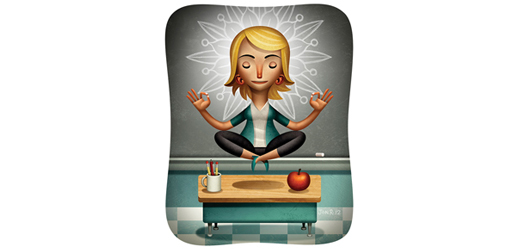Wellness for Educators
“When the well’s dry, we know the worth of water.”
– Benjamin Franklin
Research shows that the physical, mental, and emotional well-being of educators influences their ability to be present, calm, and responsive in the classroom. This directly impacts student’s engagement, social emotional development, and academic performance, especially since children tend to emulate the mood and reactions the adults in their life are modeling. It is so important for us as educators to give ourselves the space to reflect and grow our self-care practices so that we can be our best selves for our students. But how can we do this???
At 45th Street, staff members are invited to participate in a Self-Care for Educator’s Wellness Group that is led by one of the school psychologists, who is also a certified yoga and wellness teacher. Creating a safe space to collaborate and share thoughts about daily stresses educators face, as well as self-care techniques specifically tailored to the work we do, encourages feelings of connection and support among our school community. Participants will be exposed to research, journal prompts, yoga and meditation classes, gratitude challenges, accountability buddies, and so much more. These activities are intended for staff members to develop an effective, daily self-care routine so we can be the most present and responsive educators for our students!
Here are a few quick tips to incorporate self-care into your day:
- Listen to a meditation app on your commute to help calm your mind and body – like Calm (free for educators), Headspace, or Smiling Mind.
- Bring a bright, fun water bottle to work! It’s important to stay hydrated throughout the day and an eye-catching bottle will encourage you to drink more. Water helps you stay more alert by increasing brain function and regulating body temperature.
- Think of 3-5 things you are grateful for each day. Write it down in a journal or share with your class as part of a morning meeting or homeroom gratitude share.
By providing educators with the tools and support needed to foster well-being in their lives, we can empower classrooms and school communities as a whole! Studies show that when educators are calm and present, students are able to learn more effectively, improving their social-emotional skills, and academic performance. Prioritizing our own mind-body wellness is not only great for us, but vital for our students and their progress!


